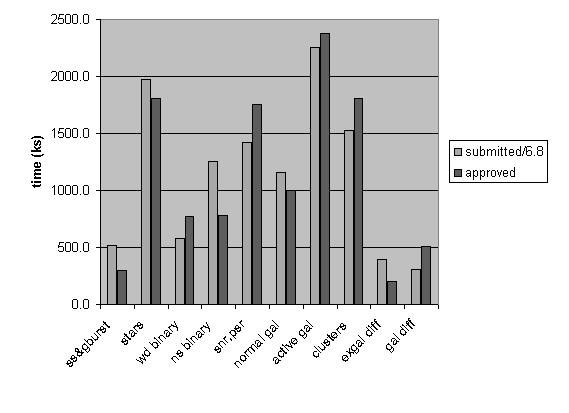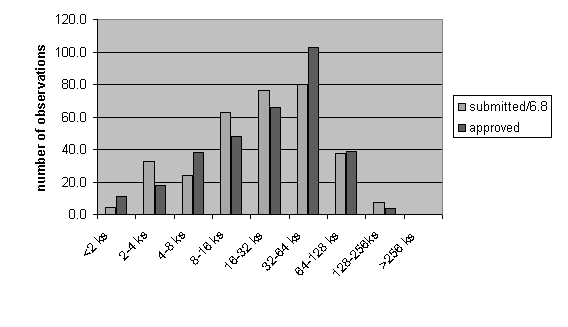



Next: Education and Outreach
Up: Chandra News
Previous: HETGS and the Crab
The Peer Review for Cycle 1 observing proposals was held April
4-6 at the Westin Hotel, Waltham, MA. 779 proposals were submitted and
were divided into 13 panels covering 4 broad subject areas. Each
panel had approximately seven reviewers and was responsible for
ranking approximately 60 proposals. The review followed the usual
procedure for the first two days. Each proposal was assigned a primary and a
secondary reviewer and each panel was given a certain amount of
observing time to be awarded. Ten percent of the observing time was
withheld and was awarded by a merging panel which met on the third
day. This panel selected from a pool of borderline proposals
submitted by the 13 science panels. 208 projects were approved,
wholely or in part. There were restrictions on the number of TOO and
other time-critical observations which could be awarded, and there was
no special treatment for ``long observations''.
The figures show the distribution of observing time by science subject
(arranged: solar system, galactic targets, extragalactic targets, surveys)
and by length of observation. Submitted proposal numbers divided by the
oversubscription factor of 6.8 are compared with numbers taken from
approved projects. The partition of time and targets among science
subjects was largely determined by proposal pressure. The three
longest GO exposures awarded were 190, 150, and 150 ks. The three largest
time awards (to one proposal) were 307, 195, and 190 ks. The median
approved Chandra GO observation length is about 30 ks.
Figure 13: Chandra Cycle 1 Observing Time
 |
LINK TO POSTSCRIPT FILE for
Figure 13
Counting the initial calibration, cycle 1 is expected to span 12
months of observing time. This time is divided: 11.3 Ms
for general observers (GO), 8.2 Ms for guaranteed-time observers
(GTO), and 2.8 Ms for calibration.
Figure 14: Chandra Cycle 1 Observation Length
 |
LINK TO POSTSCRIPT FILE for
Figure 14
The Chandra Users' Committee considered alternate proposal submission
and review procedures at their July meeting. Emphasis was on the
timely generation of good technical reviews and on the function of
the merging panel. Chandra users or potential users should feel free
to discuss any concerns with members of the Users' Committee.
Fred Seward




Next: Education and Outreach
Up: Chandra News
Previous: HETGS and the Crab
usupport@asc.harvard.edu
